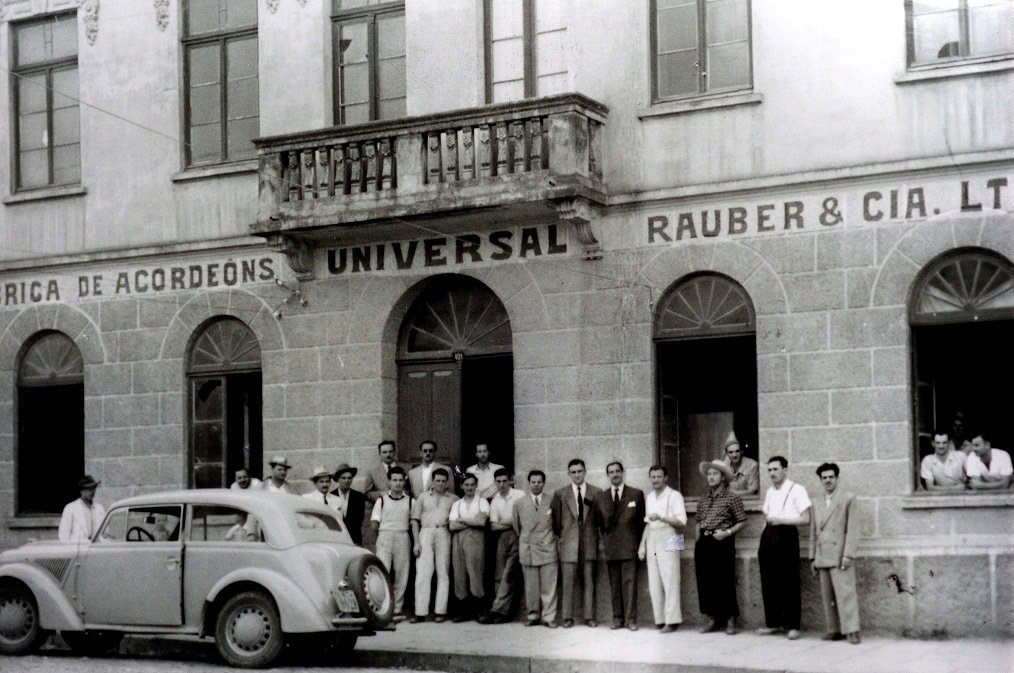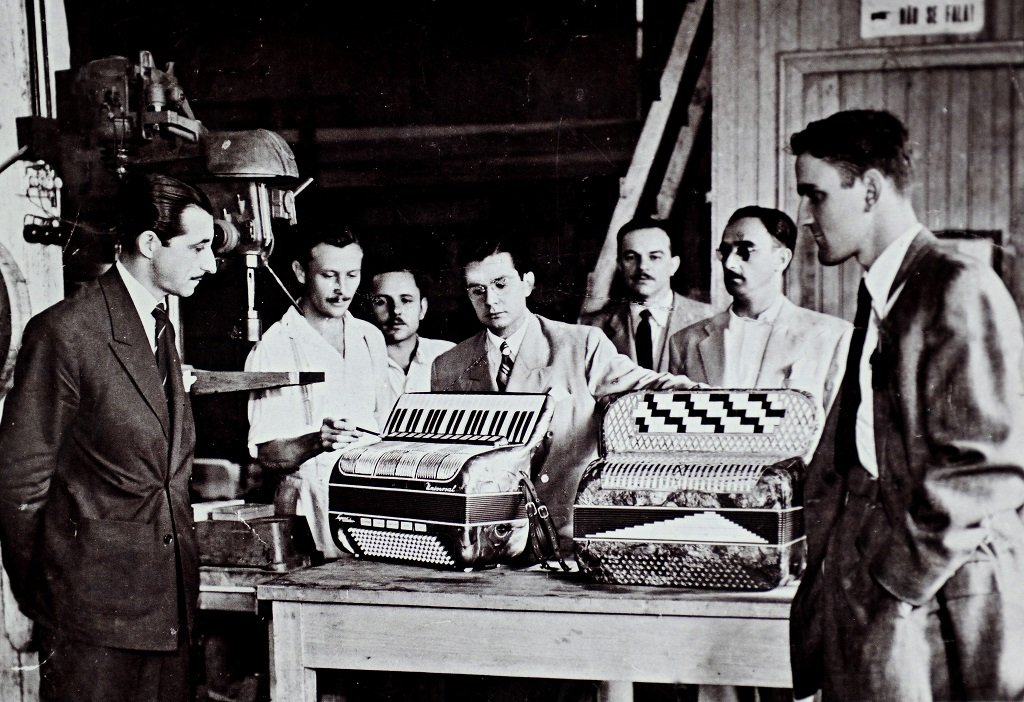Soprofon 37 Universal
- This topic has 8 replies, 5 voices, and was last updated 7 years ago by
Paul Durham.
-
AuthorPosts
-
October 22, 2015 at 10:53 pm #6125
Anonymous
InactiveHello!
This topic is about the Soprofon 37 Universal melodica, a brazilian model. I’m writing it as a response to Melodica-Me’s request on another topic, “Traditional Irish music on the melodica”.
Here it is:
Image 1
Image 2
Image 3
Image 4
Image 5Sound examples (I apologize for my neighbour’s barking dog in the background):
Dirty Old Town
Man of the HouseDimensions: 42.3 x 9.6 x 5.0 cm (approximately)
Keys: 37, 3 octaves starting from G
Materials: plastic and a very light metal (probably aluminum); rubber hand strap; plastic mouthpiece.It’s a nice instrument, with a sweet and mellow sound. It has a fairly balanced tone in terms of volume, but it does get gradually louder as you move toward the higher pitches, requiring some air adjustments while playing otherwise the sound will get a little screechy – which might be something amendable with a regulation (not sure, since I’m just starting at this melodica business :D). When I took it to an Irish music session the other day at a pub I had a hard time sounding it above all the noise, especially in the lower octave.
As it’s not a particularly loud-sounding melodica, it serves well to study without bothering too much the neighbours (although they drive me crazy with their barking dogs) or to play in homely indoor situations.
The model I have is clearly an old one, so it has some regulation issues when it comes to key action (some notes are not as deep as the others). In a new model, however, such a problem probably wouldn’t exist. However, I couldn’t find any trace of the maker in the internet, so I’m not sure they’re still in business. The spring action is generally okay, but it’s a lot easier to play fast repeating notes (switching fingers) in my Yamaha P37D.
I like the hand strap a lot, because it’s tight and firm, and the mouthpiece is nice and wide, which I prefer to that narrow straw-like mouthpiece you see in some Suzuki’s melodions.
The main problem for me is size. Since I’m 6’4, sometimes it gets real tricky to play ornaments in those tiny keys.As far as I can tell, Universal was as an instrument manufacturer from the south of Brazil. They made mainly accordions, but also melodicas and harmonicas (if I’m not mistaken). I couldn’t find any updated info on them. You can still find some of their melodicas available for sale in buying and selling websites such as this.
I think that’s all. If anyone has any questions, I’ll happily do my best to answer them.
October 23, 2015 at 4:57 pm #6132 Melodica-MeParticipant
Melodica-MeParticipantHello Gui, the sound is good, very nice tone, the clarity sounds of individual reads, do you know if it has a reed plate or if they are individual reeds?
Melodica-Me
October 29, 2015 at 2:08 am #6182Gabriel Velasco
ParticipantBeautiful instrument. Looks great. Sounds great.
October 30, 2015 at 5:27 pm #6194Anonymous
InactiveHello Melodica-Me!
I’m not sure, I haven’t opened it yet. When I do, I’ll check it out and let you know.October 31, 2015 at 2:54 pm #6197 Alan BrintonParticipant
Alan BrintonParticipantI wonder if the company that made this might have also been the “Hohner International” manufacturer in Brazil?
November 10, 2015 at 10:03 am #6236Anonymous
InactiveHello Alan,
I’m not very knowledgeable about Hohner’s history in Brazil since I’m just starting at this melodica/accordion business. But I as far I as was able to understand from reasearch, Universal and Hohner were two different manufacturers, the former based on Caxias do Sul (RS) and the latter in Blumenau (SC), both southern brazilian ciites with a strong accordion tradition.

January, 1949: employees and managers pose in front of the Universal factory

1949: Brazilian artist Pedro Raymundo (to your left) visits the Universal accordion factory
What I was able to understand, however, is that after the First World War a German immigrant named Alfred Hering, who was the son-in-law of a Hohner salesman, started a harmonica company based in Brazil. With the difficult economical situtation it wasn’t easy to import musical instruments, so his company (Hering) soon became famous and widespread throughout the country. Apparently, during the Second World War Hering was able to expand its market through to the USA, where harmonicas were already very popular, since now they couldn’t import the Hohner models from Germany.
In the 1960s Hohner bought Hering and remained in Brazil until late in the 70s, when economical shifts made them sell it to investors, who try to keep it at the same level of quality they learned while under Hohner management. The company is now in the hands of italian-born Alberto Bertolazzi and it’s still working.
The Hering harmonica company manufactured some melodicas also, but mainly toyish stuff as far as I could tell.
Not sure if that’s what you meant, but a nice story nonetheless.
Sources:
Jornal de Santa Catarina
Hering’s official website
Article on Pedro Raymundo’s visit to the Universal factoryAll the best!
November 10, 2015 at 2:40 pm #6239 Alan BrintonParticipant
Alan BrintonParticipantThanks, Gui! That’s very informative and fascinating for those of us who are interested in the history of the melodica and related instruments. I have been curious about Brazil because in searching for rare melodicas, including some Japanese models, I have seen them for sale from there. I also knew there had been some immigration of Germans into Brazil. Thanks also for providing the photos.
April 3, 2017 at 9:21 pm #8787 Alan BrintonParticipantApril 5, 2017 at 11:31 am #8790
Alan BrintonParticipantApril 5, 2017 at 11:31 am #8790Paul Durham
ParticipantDidn’t see springs. Had you already removed them or is this a way in which the design is different from most melodicas. Anyway thanks for a very interesting lesson in construction and repair. You are extremely talented and patient.
-
AuthorPosts
- You must be logged in to reply to this topic.



















